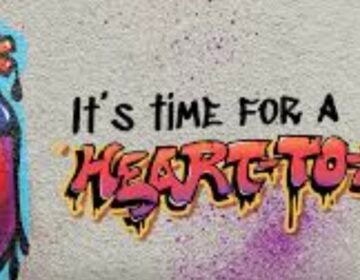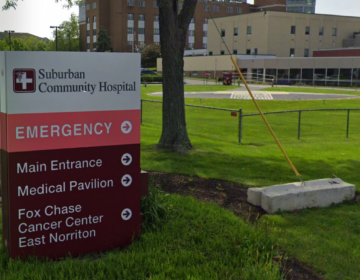Binge eating is common yet misunderstood
It’s the most common eating disorder, but it often goes undiagnosed or is misdiagnosed. Participants in this week’s Binge Eating Disorder conference in Philadelphia want to change that.
Binge eating disorder can easily look like obesity since people who have it tend to be overweight. But it goes far beyond food choices and exercise. Binge eating is triggered by deep psychological distress and eating offers relief — albeit short-lived.
Chevese Turner said she felt extremely depressed and upset after an eating binge, yet felt unable to stop this behavior which started early on in her life.
Turner was an overweight child experiencing trauma at home and at school, and food became a momentary escape. She said she was able to break the vicious cycle and get better once she understood what she was dealing with, and found a therapist specializing in this disorder.
Turner founded The Binge Eating Disorder Association, which organized the conference aimed at spreading awareness as well as offering resources and training. One target audience for information is made up of general practitioners. Turner says doctors often see extra weight and immediately suggest diet and exercise.
“I know I dreaded going to the doctor because I knew the topic was going to be my weight — and I knew what was going on, and I was so ashamed of that,” she recalled.
Suggesting a diet doesn’t help
Miami psychiatrist and eating disorder treatment specialist Wendy Oliver Pyatt, one of the presenters at the conference, says suggesting a diet doesn’t help patients.
“The person desperately wants to be able to stop binging. And to just prescribe a diet is so out of touch with the severity of the psychiatric illness and the intensity of the symptoms,” Pyatt said
Pyatt says doctors should engage patients in a discussion around food and what role it plays in their life to detect warning signals for binge-eating disorder.
More than 200 experts and advocates are participating in the three-day conference.
They will focus on treatment options, awareness and outreach, as well as reducing weight stigma.
Turner said another important aspect of this year’s conference is to prepare for the release of DSM V, the so-called bible of psychiatry. The Diagnostic and Statistical Manual is currently being overhauled, and binge-eating disorder will appear as a separate diagnosis. In the current DSM, its symptoms are listed under “eating disorder not otherwise specified.”
The separate category could mean increased awareness and more research, but could also cause backlash, Turner said.
“I expect there will be media reports that say we are pathologizing overeating, but this is not about just overeating,” she said.
Turner said her organization is preparing for increased interest in this disorder by making a documentary, and having information and resources available.
WHYY is your source for fact-based, in-depth journalism and information. As a nonprofit organization, we rely on financial support from readers like you. Please give today.




